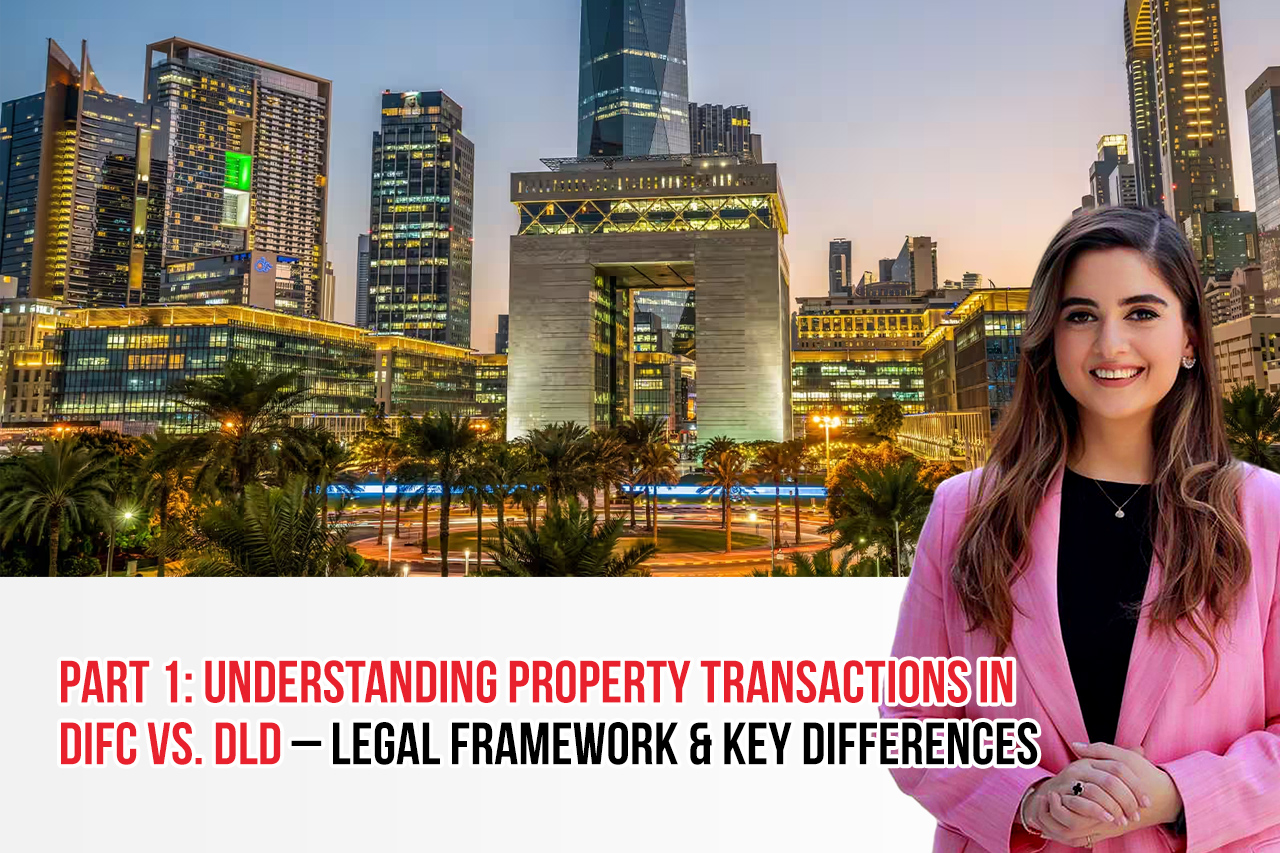
Dubai’s real estate market operates under distinct regulatory frameworks depending on the jurisdiction. The Dubai International Financial Centre (DIFC) follows a common law system based on English law, while the Dubai Land Department (DLD) follows civil law, which is influenced by Islamic Sharia principles.
For buyers, sellers, and investors, understanding these fundamental differences is crucial for navigating property transactions efficiently. This article explores the core distinctions between property transactions in the DIFC and DLD, focusing on key aspects such as legal structure, transfer fees, contract timelines, and procedural requirements.
Key Differences Between DLD and DIFC Property Transactions
1. Legal Framework & Governance
- DLD: Operates under a civil law system where codified regulations form the primary legal basis for property transactions.
- DIFC: Follows a common law system, relying on case law, judicial precedents, and contract law principles.
This distinction impacts how contracts, disputes, and ownership rights are interpreted and enforced in both jurisdictions.
2. Transfer Fees for Secondary Sales
- DLD: A fixed 4% transfer fee on the property’s sale price.
- DIFC: A 5% transfer fee on the sale price.
3. Sale and Purchase Agreement Duration
- DLD:
- Standard Unified Contract F duration is between 1 to maximum 180 days.
- If the seller has a mortgage, the minimum duration is 60 days.
- DIFC:
- The standard Sale and Purchase Agreement or MOU timeline is 30 days.
- This can extend to 50 days if the seller has a mortgage.
- Unlike DLD, in DIFC, transactions can exceed 30 or 50 days without issue as long as the 5% transfer feeis lodged before the deadline to DIFC.
DIFC Property Transfer Requirements & Fees
For those purchasing property in DIFC, certain fees and documents are required:
1. Fees Applicable in DIFC
- Transfer Fee: 5% of the property price.
- Lodgment (Title Deed) Fee: AED 367.25.
- Mortgage Fees:
- AED 367.25 for conventional mortgages.
- AED 1,002.50 for Islamic mortgages.
2. Required Documents for Submission to DIFC
- Contract of Sale between the Buyer and Seller.
- Identification Documents for both parties.
- No Objection Certificate (NOC) from the Developer.
- NOC from the Building Management confirming utility clearance.
- Proof of Payment (manager’s cheques or wire transfer proof).
3. Transfer Fee Payment Timeline & Penalties
- Buyers must lodge the 5% transfer fee with the DIFC Registrar of Real Property within:
- 30 days (standard cases).
- 50 days (if the seller has a mortgage).
- Late Payment Consequences: A $1,000 penalty plus interest applies if the transfer fee is not lodged within the deadline. If the application is not processed, a valid justification must be submitted to the Registrar for review before a refund is issued.
4. Title Deed Requirements
- If the seller’s title deed was originally issued, it must be returned during the transfer.
- In case of a lost title deed, a replacement request must be submitted with a police report and a fee of AED 1,002.50.
For detailed procedural guidance, refer to the DIFC Client Handbook.
Understanding the distinct regulatory landscapes of DIFC and DLD is essential for smooth property transactions. While DIFC follows a common law structure with a higher transfer fee and flexible contract timelines, DLD operates under civil law, with a lower transfer fee and stricter procedural timelines.
For expert assistance in DIFC or DLD property transactions, reach out to fäm Conveyancing today.
📞 971588229107 | 971521289592
📧 contracts@famproperties.com | dalia@famproperties.com
🌐 Visit us at www.famconveyancing.com